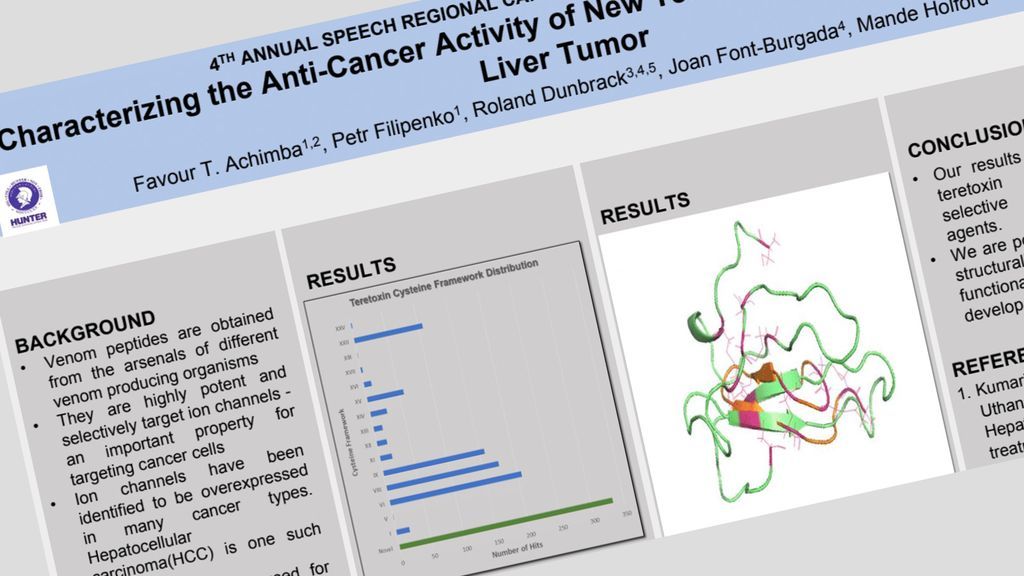Characterizing the Activity and Function of Transient Receptor Potential Channels in Liver Tumor Cells Using New Terebrid Snail Venom Peptide
| Name | Favour Achimba |
| Institution | Graduate Center and Hunter College, City University of New York |
| Research Field | Basic Research |
| Role at Institution | Graduate Student |
| Presenter(s) | Favour Achimba |

